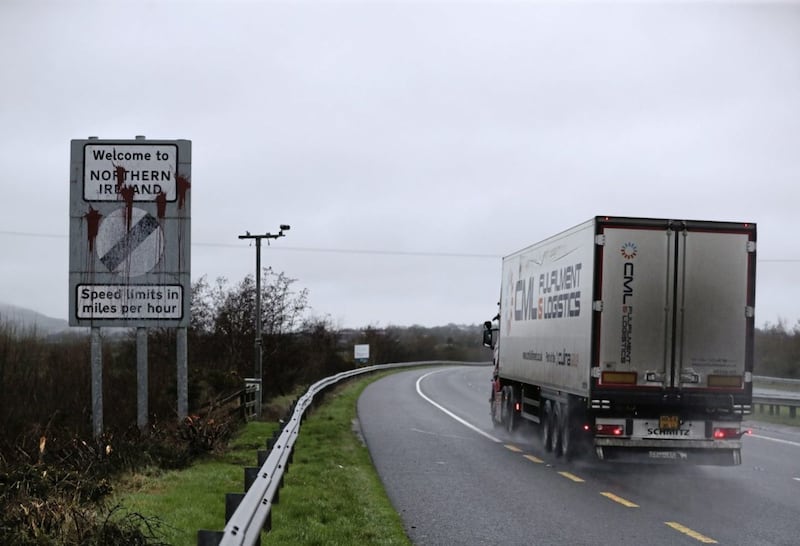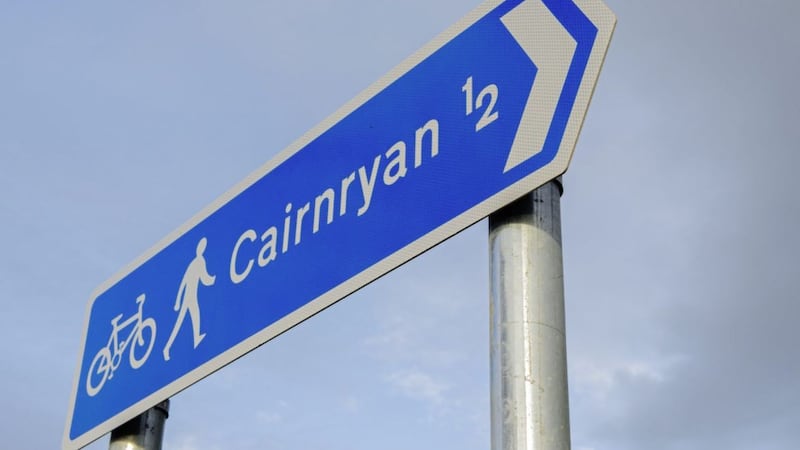BUSINESSES should expect more paperwork, bureaucracy and additional costs on trade between the north and Britain when the Brexit transition period ends in seven months’ time, according to new report.
The UK Trade Policy Observatory (UKTPO) has concluded that UK’s recently published command paper highlights significant differences between the UK and the EU and does not fully address the challenges which come from the special situation around the border.
It follows a report by a consortium of Northern Ireland business groups on Friday calling for clarity on dozens of issues around the working arrangements for trade and goods from January 2021.
The EU’s chief negotiator Michel Barnier said yesterday that no real progress have been made with the UK at the end of the fourth round of talks on a post-Brexit trade deal.
The UKTPO’s latest paper by Prof Michael Gasiorek and Dr Anna Jerzewska highlights several areas where the UK’s interpretation of what was previously agreed appears to differ from the EU’s position.
The command paper confirms the need for both entry summary and import declarations for goods entering the north - potentially the first time the UK Government has officially confirmed that both of these procedures will be required.
The UKTPO researchers predict these requirements will inevitably to lead to additional cost, time and paperwork for businesses and will represent a significant departure from how companies trade at the moment.
They say for many companies, this may require the use of a customs broker or a logistics provider at further cost because it is rare for companies to submit customs declarations themselves.
Prof Michael Gasiorek, UKTPO member and Professor of Economics at the University of Sussex Business School, said: “Time is running out for the UK and the EU to agree on how the Protocol on Ireland/Northern Ireland, which forms part of the Withdrawal Agreement, will operate in practice.
"The UK Government’s position, as recently stated in the command paper, is there will be no need to construct any new bespoke customs infrastructure in Northern Ireland except for checks for agri-foods which will require expanded infrastructure at Belfast Port, Belfast International Airport, Belfast City Airport and Warrenpoint Port. It is highly likely that the EU will consider this insufficient.”
Dr Jerzewska, Associate Fellow with the UKTPO, added: “Importantly for businesses in Northern Ireland, there is a shortage of detail in the command paper on which goods will be subject to tariffs and regulatory checks, on how customs controls would take place, and the procedures and paperwork that firms will need to adhere to. This leads to uncertainty, and will increase costs for companies in Northern Ireland and in Great Britain.”

One of the key dividing lines between the UK and EU, that the command paper fails to resolve, surrounds the criteria for determining when goods are not at risk of moving into the EU market and would therefore not be subject to tariffs.
The UKTPO paper also states that permitting goods from the north to freely enter Britain, could impact on the UK’s trade relations with third countries, as it raises the possibility of different tariffs being applied on goods entering Britain depending on whether they come via Northern Ireland or directly. In so doing the UK could be opening itself up to the possibility of WTO disputes.
Prof Gasiorek said: “Over the last few months, it has become evident that the interpretation of the Northern Ireland Protocol differs between the UK and the EU and the command paper recently published by the UK seems to cement these differences, and these differences will spillover into the on-going future relationship negotiations.”



